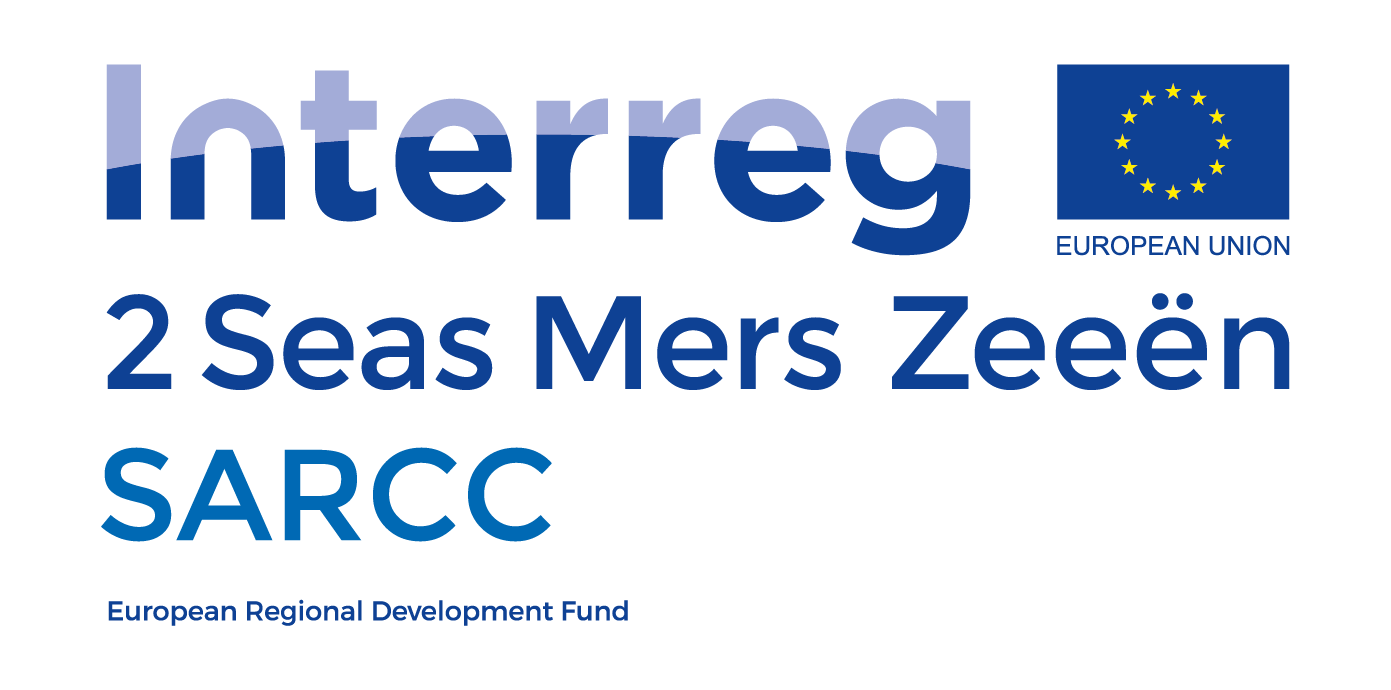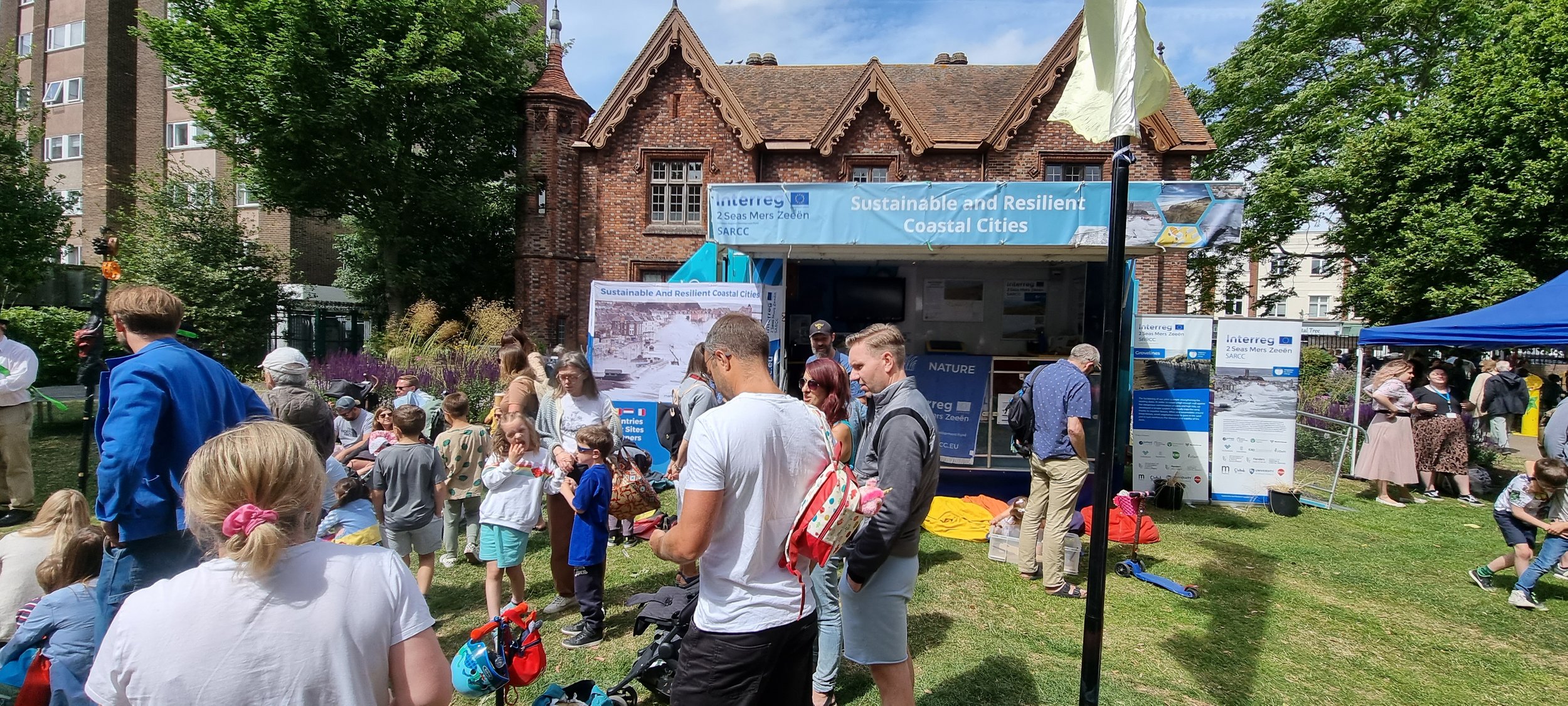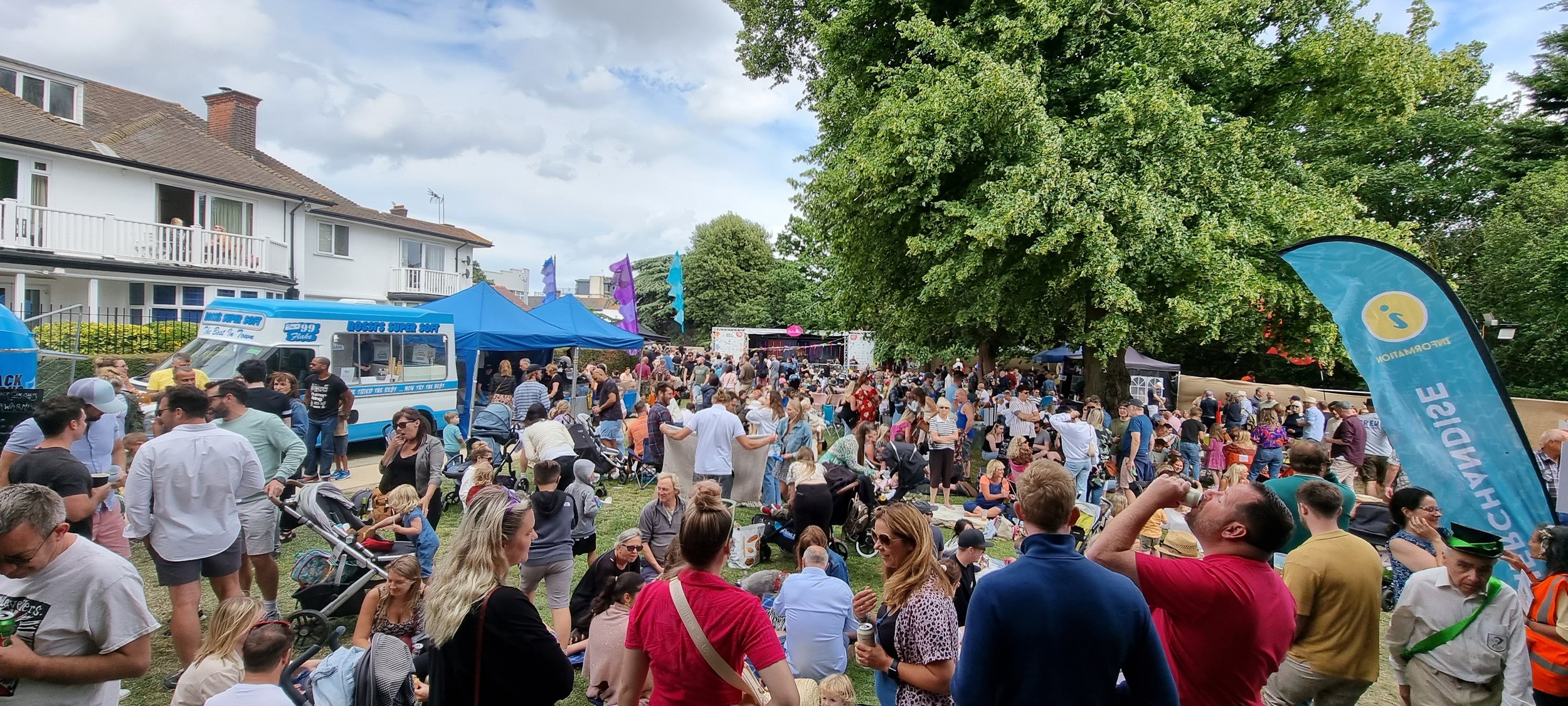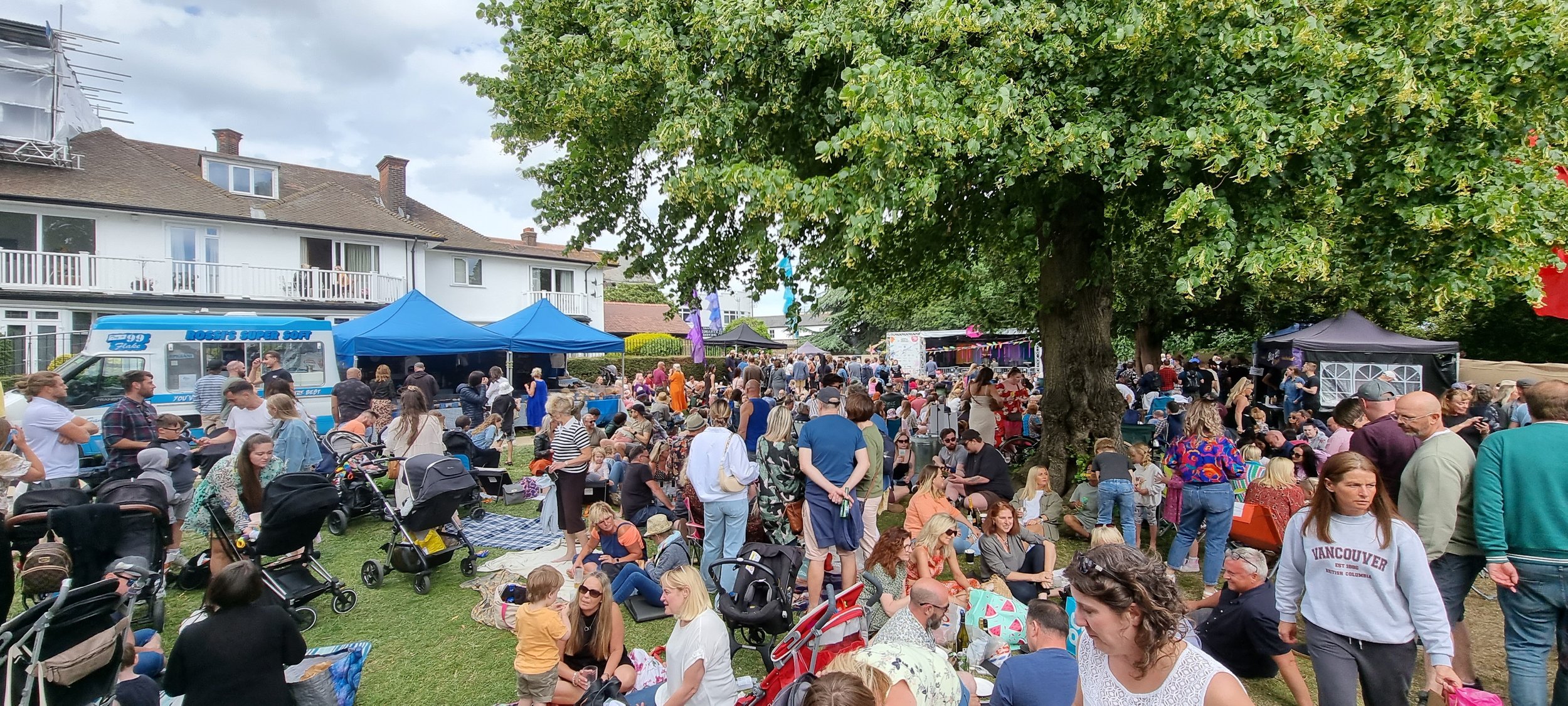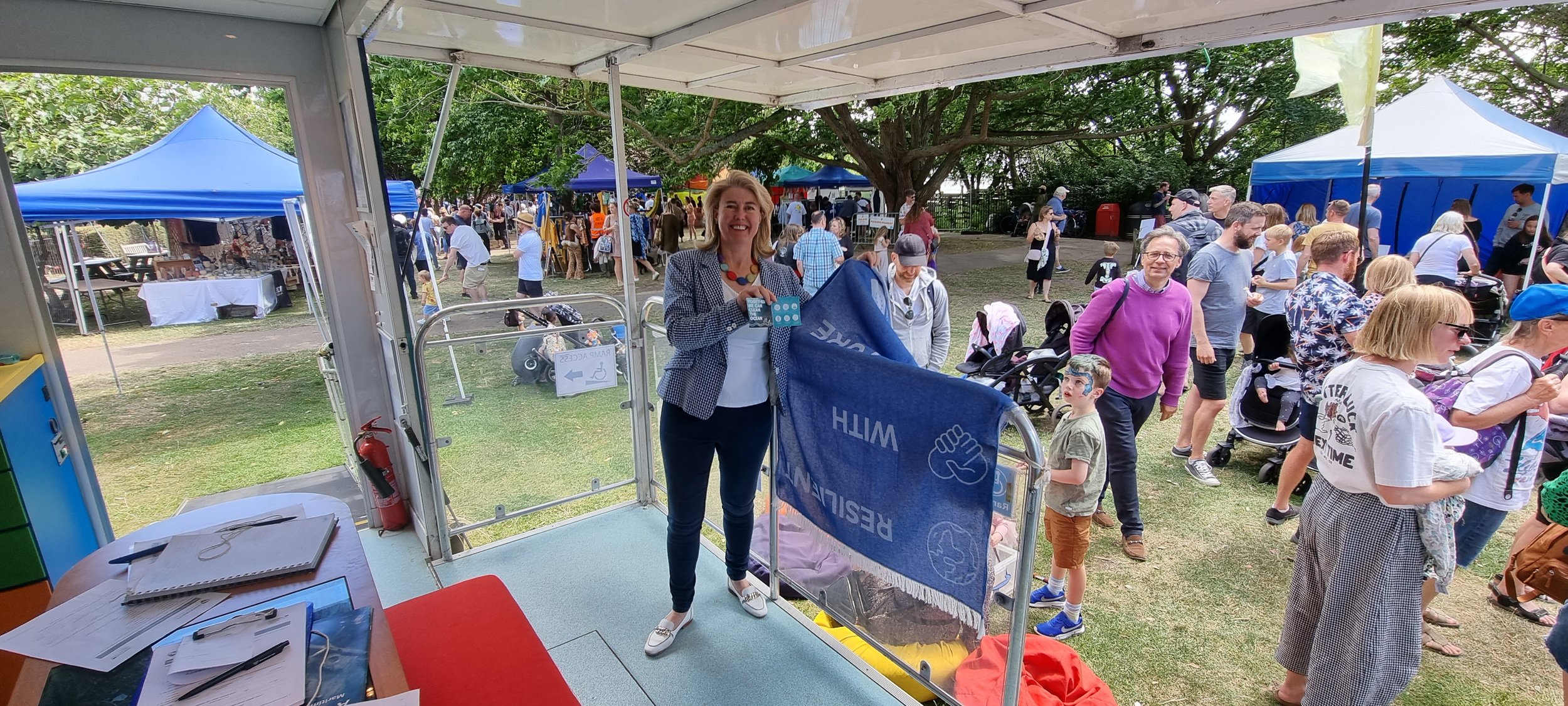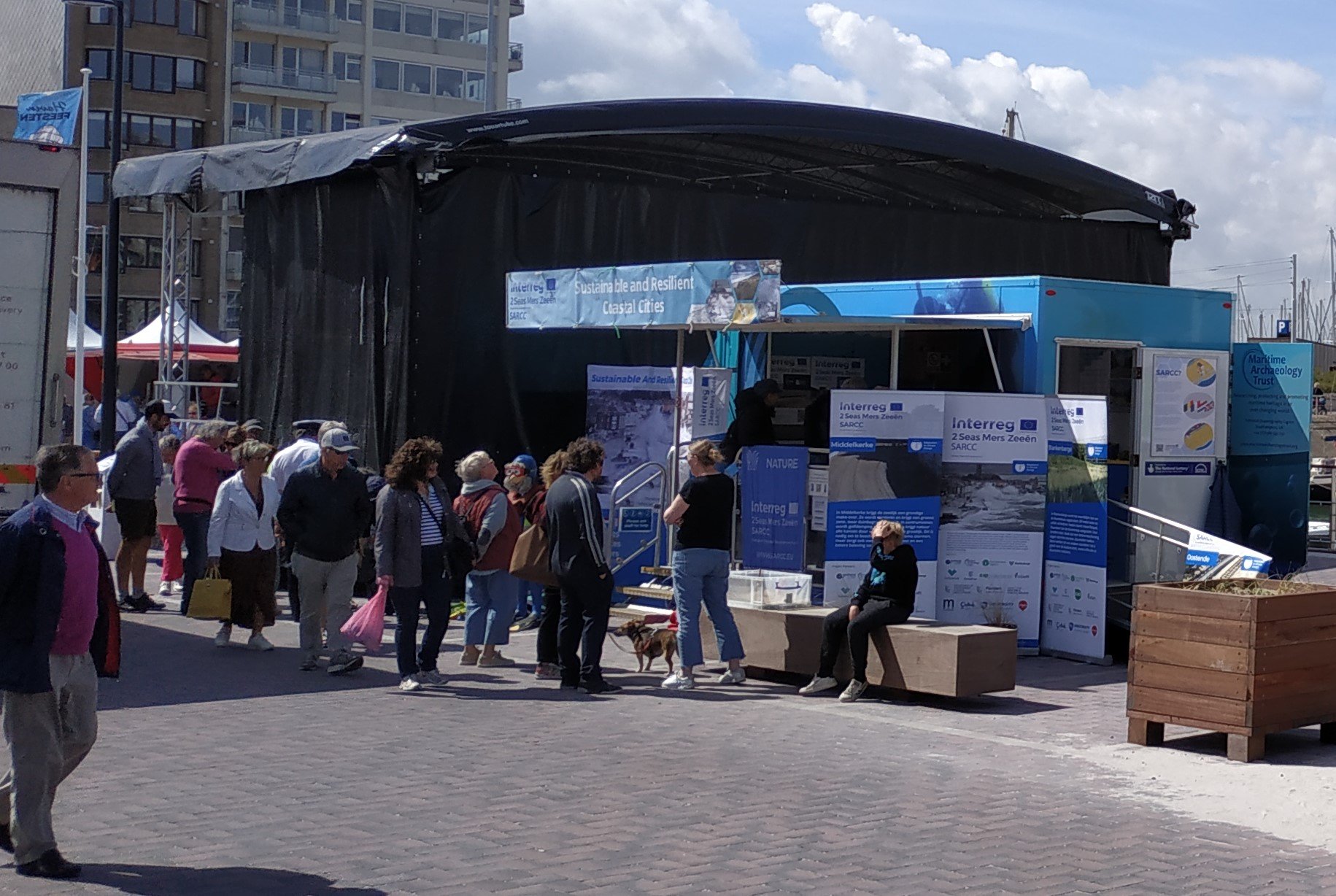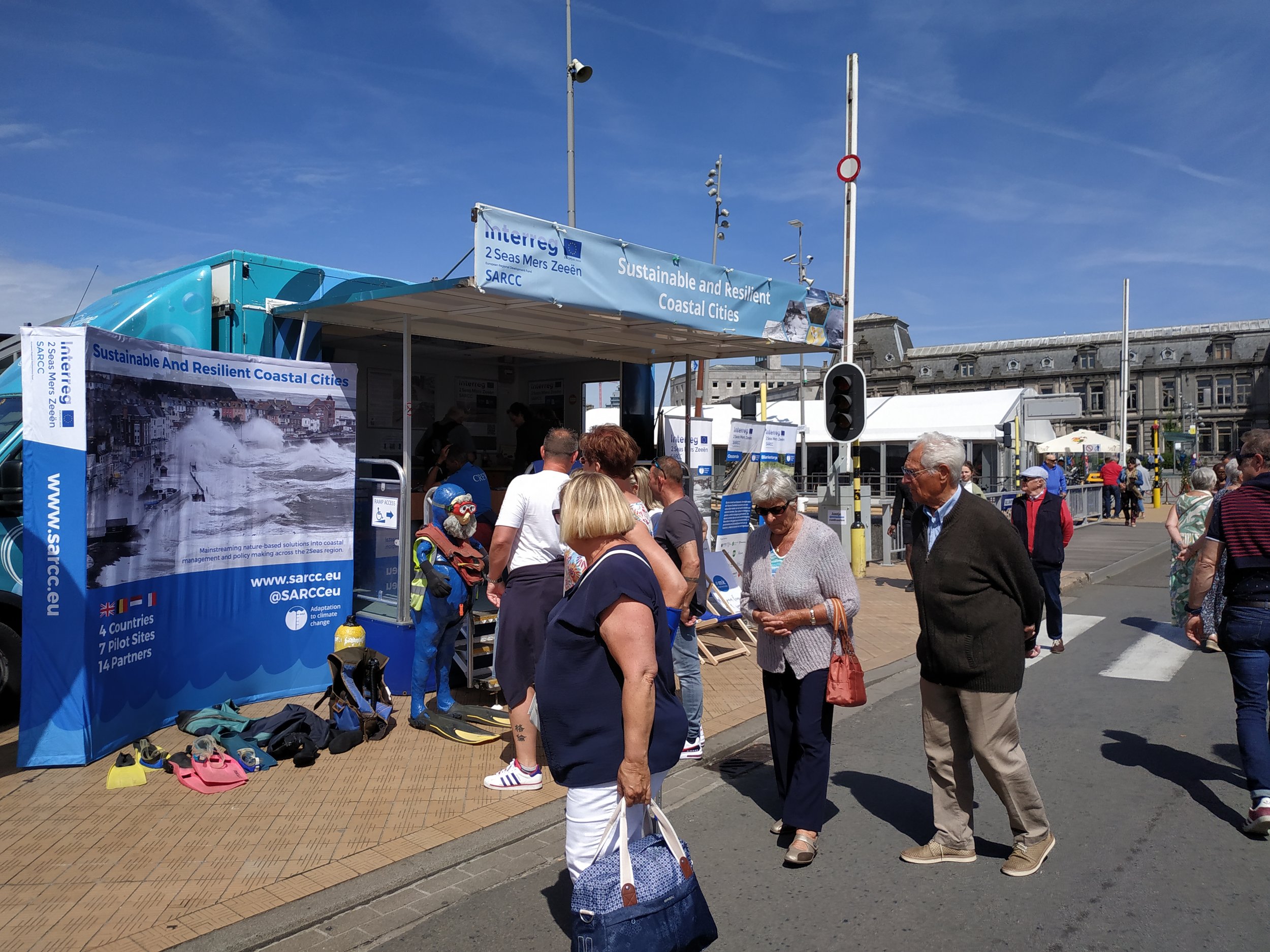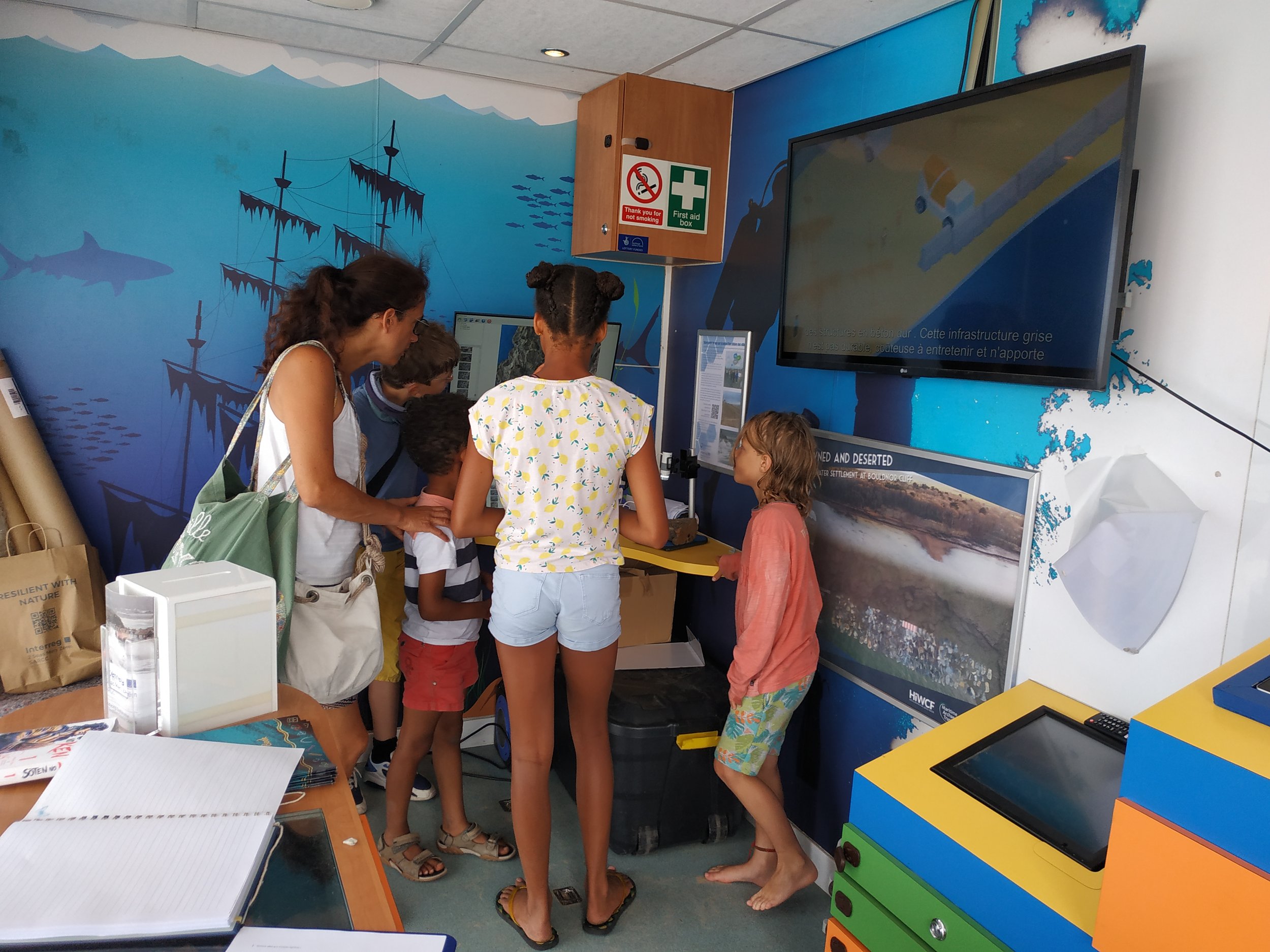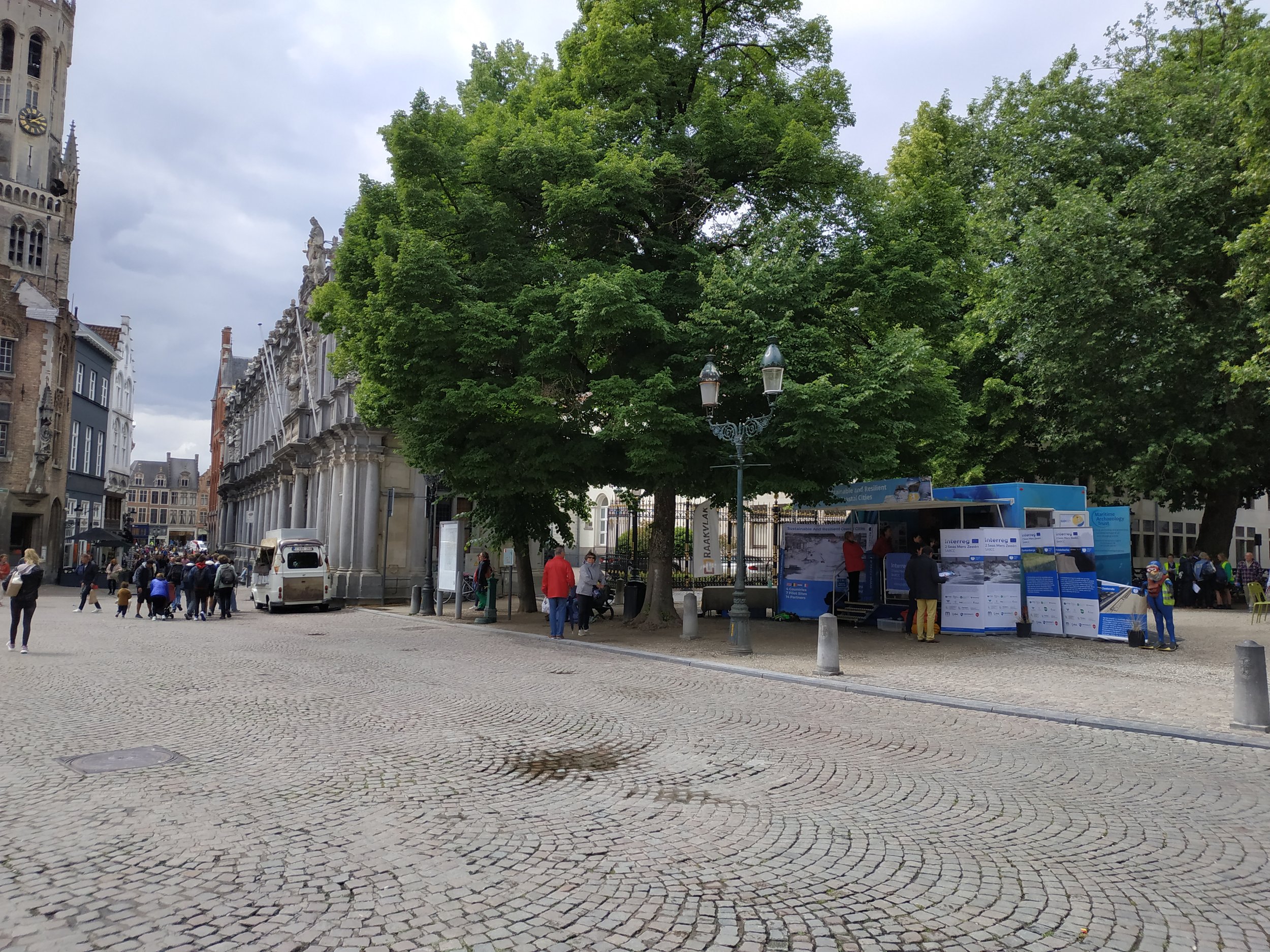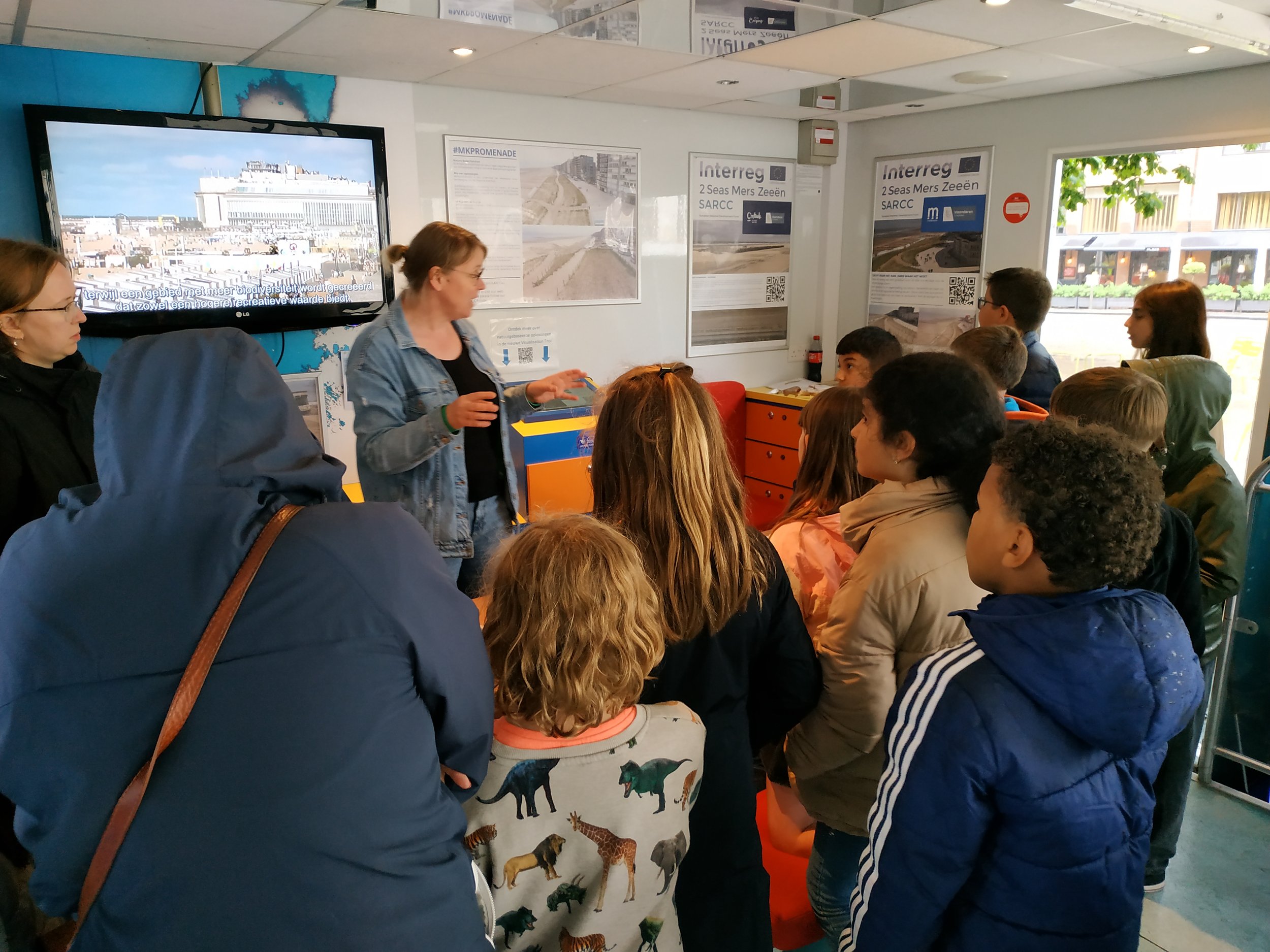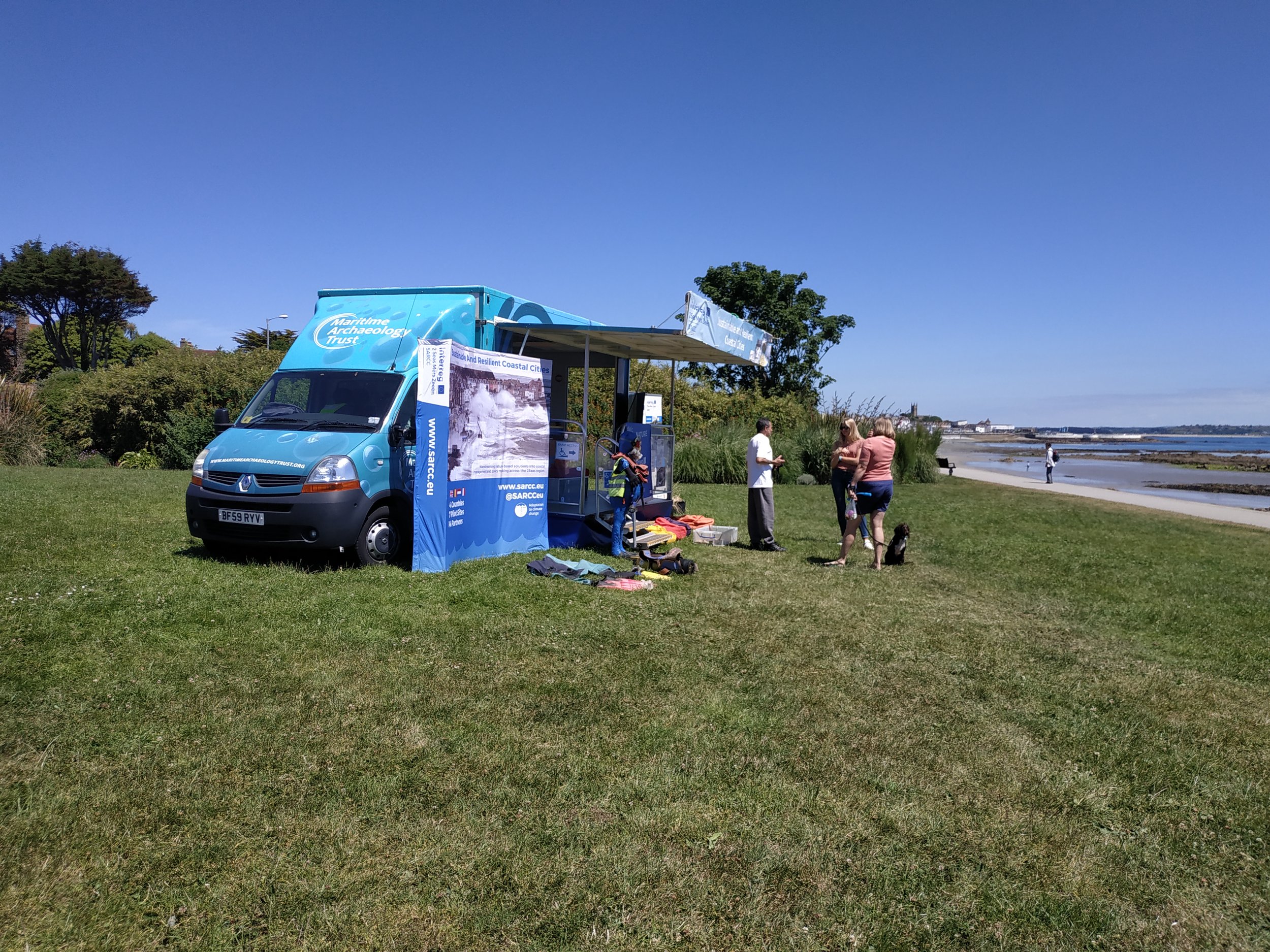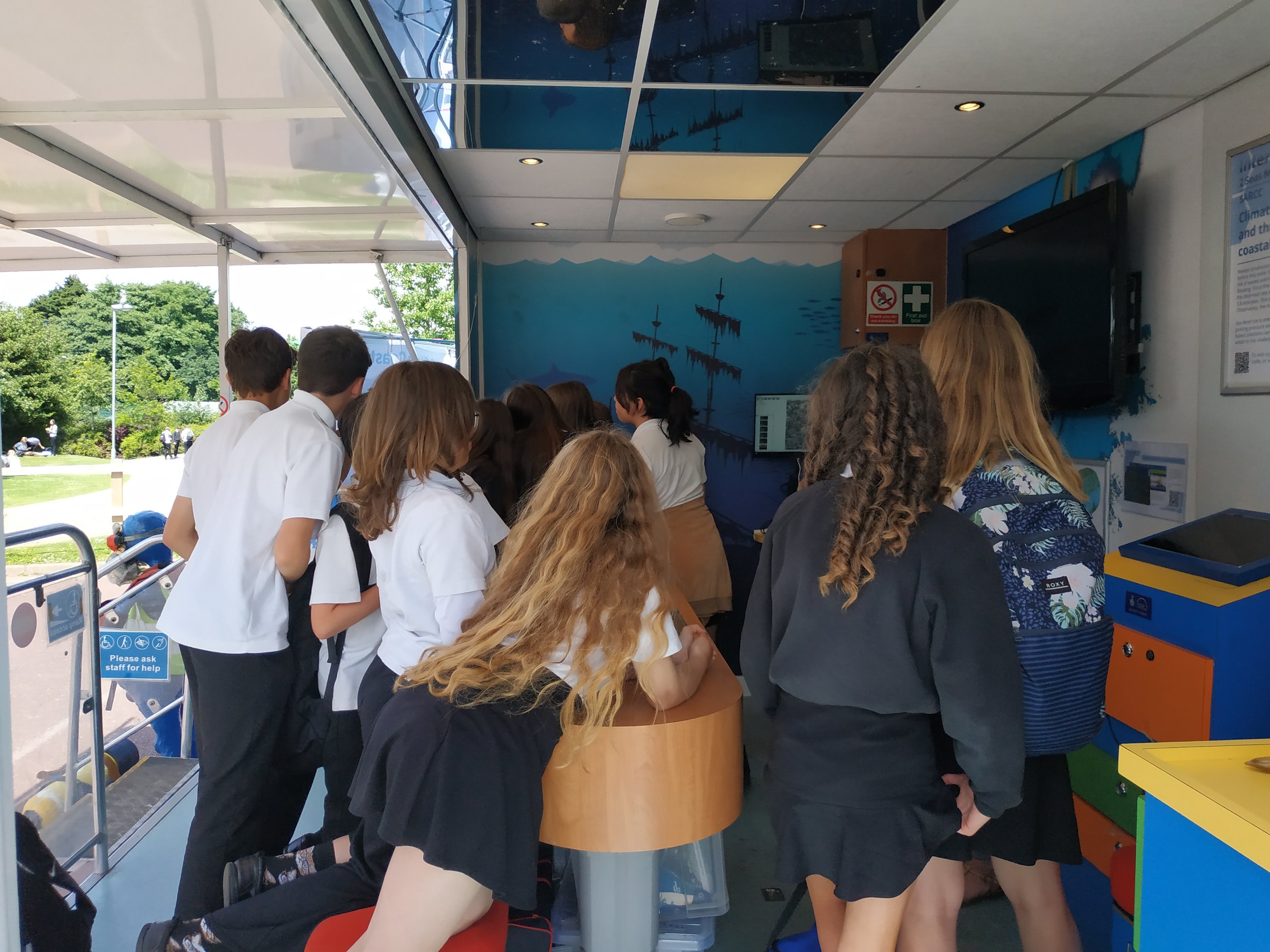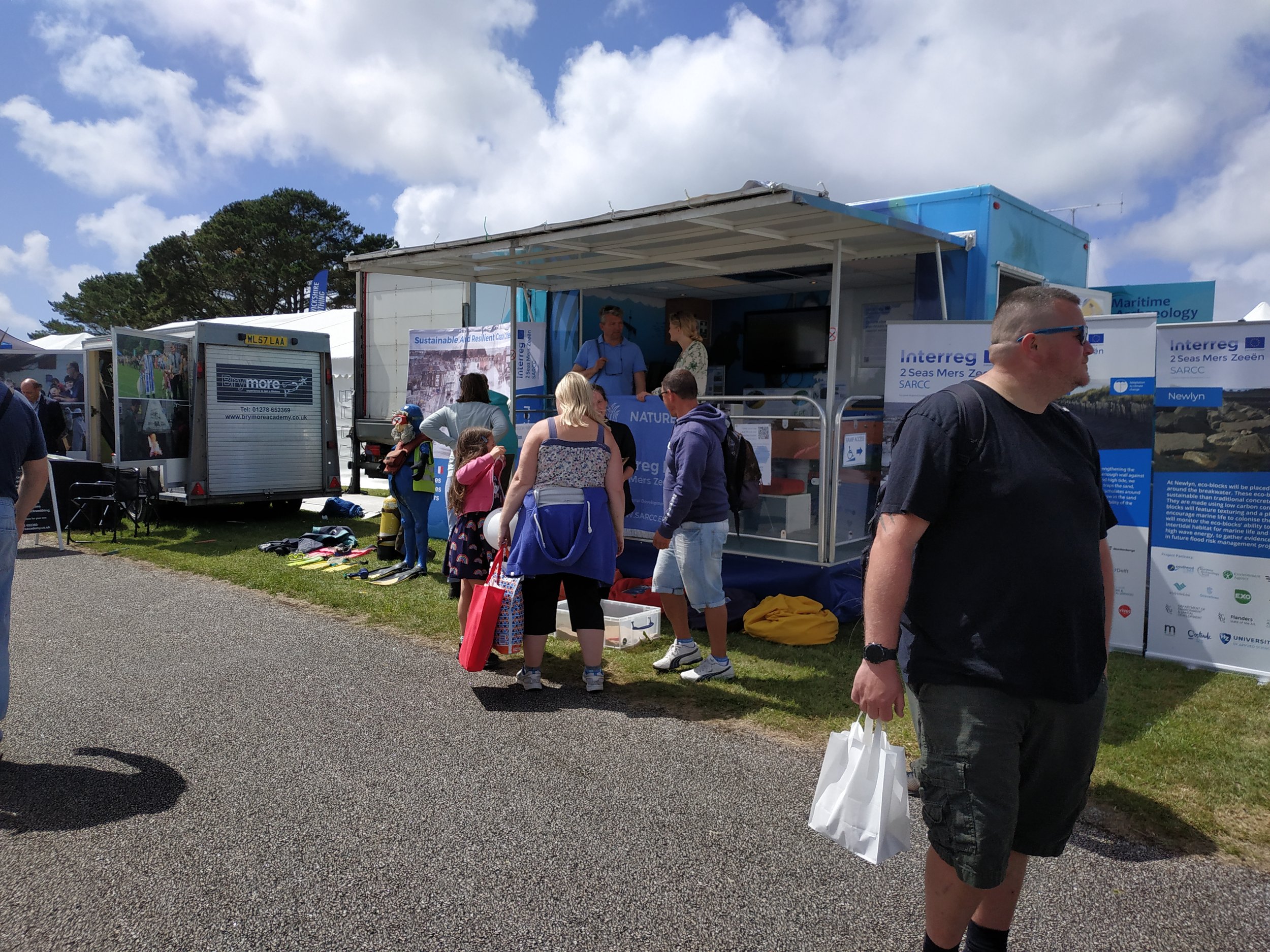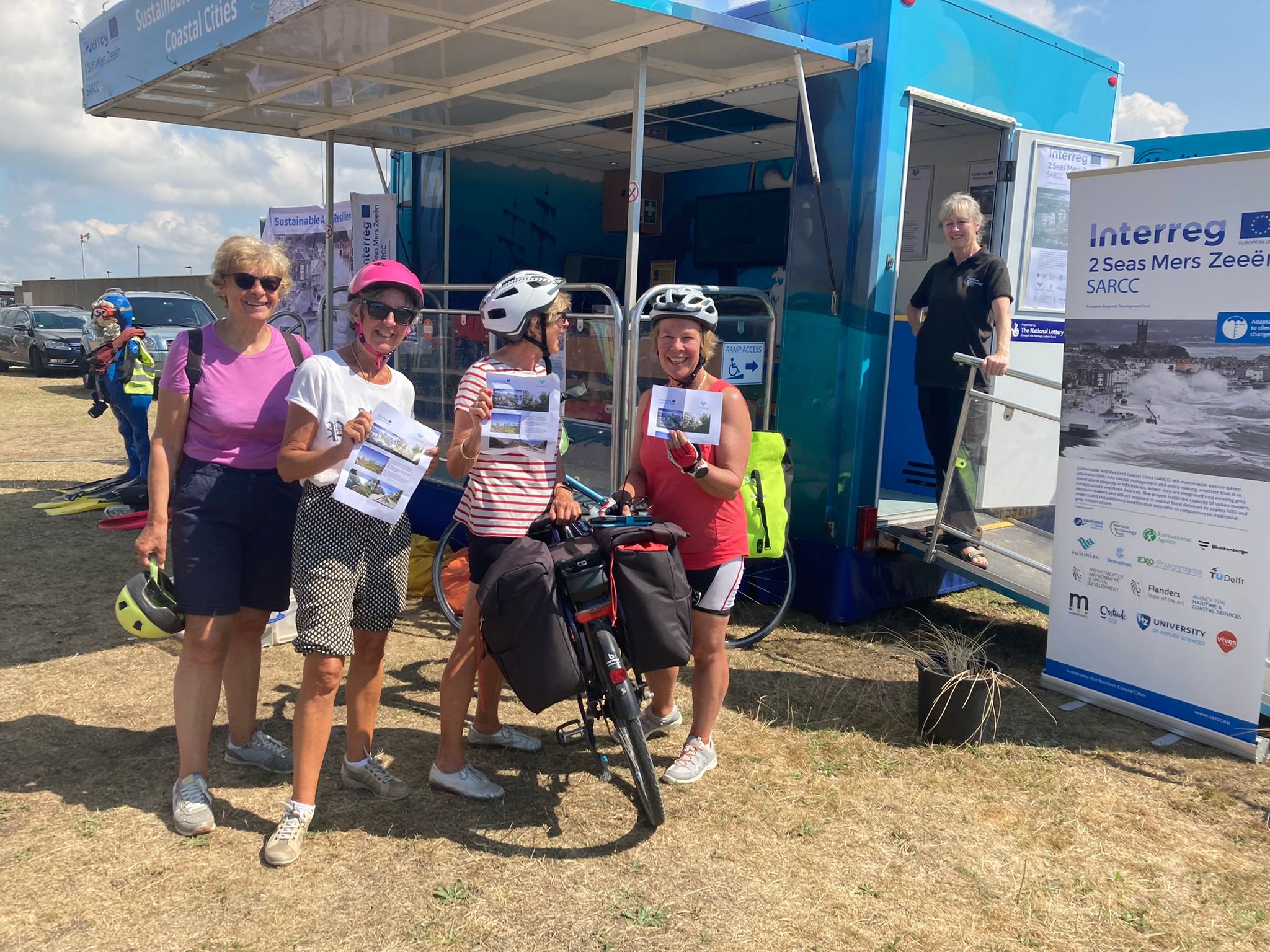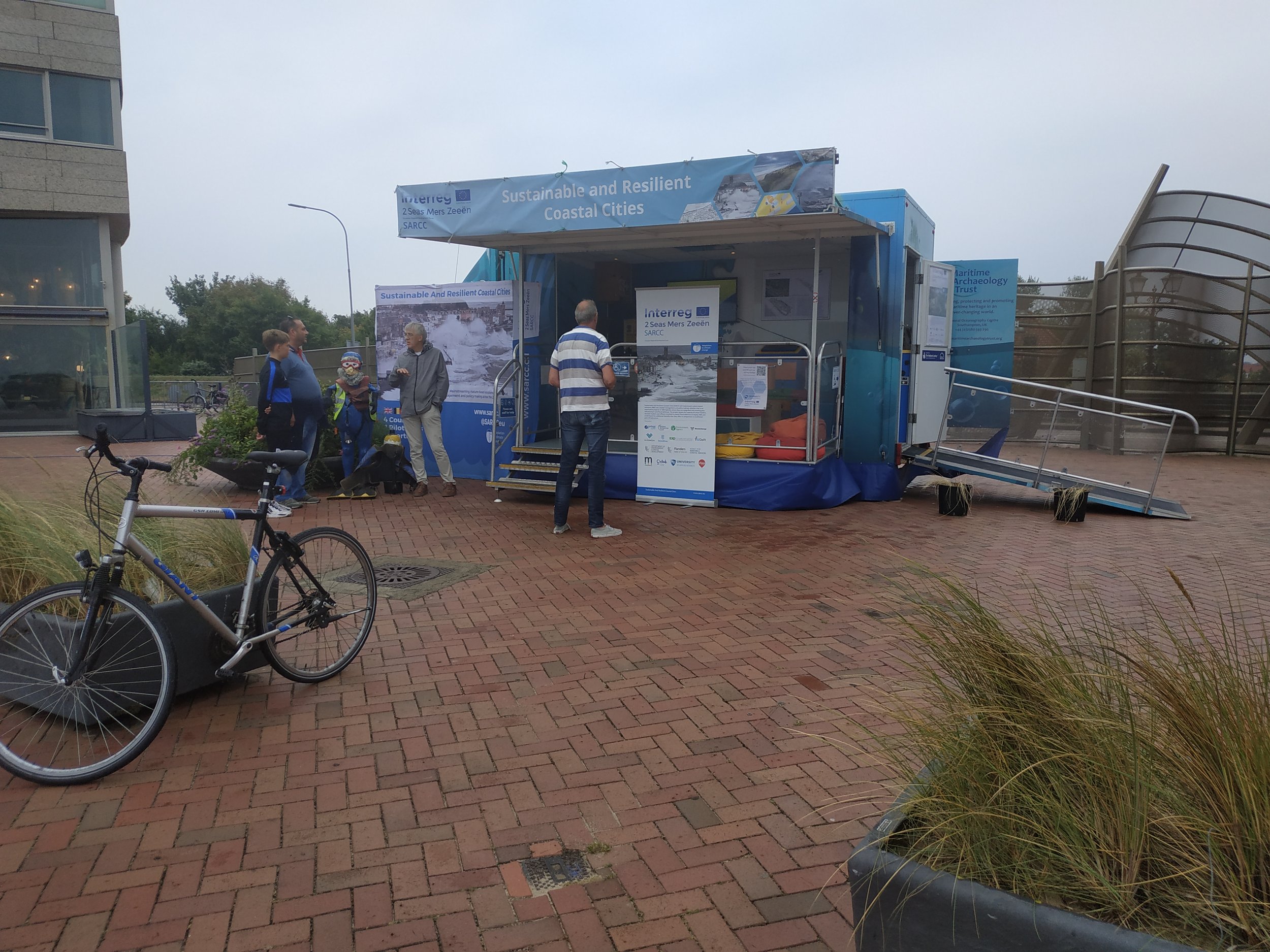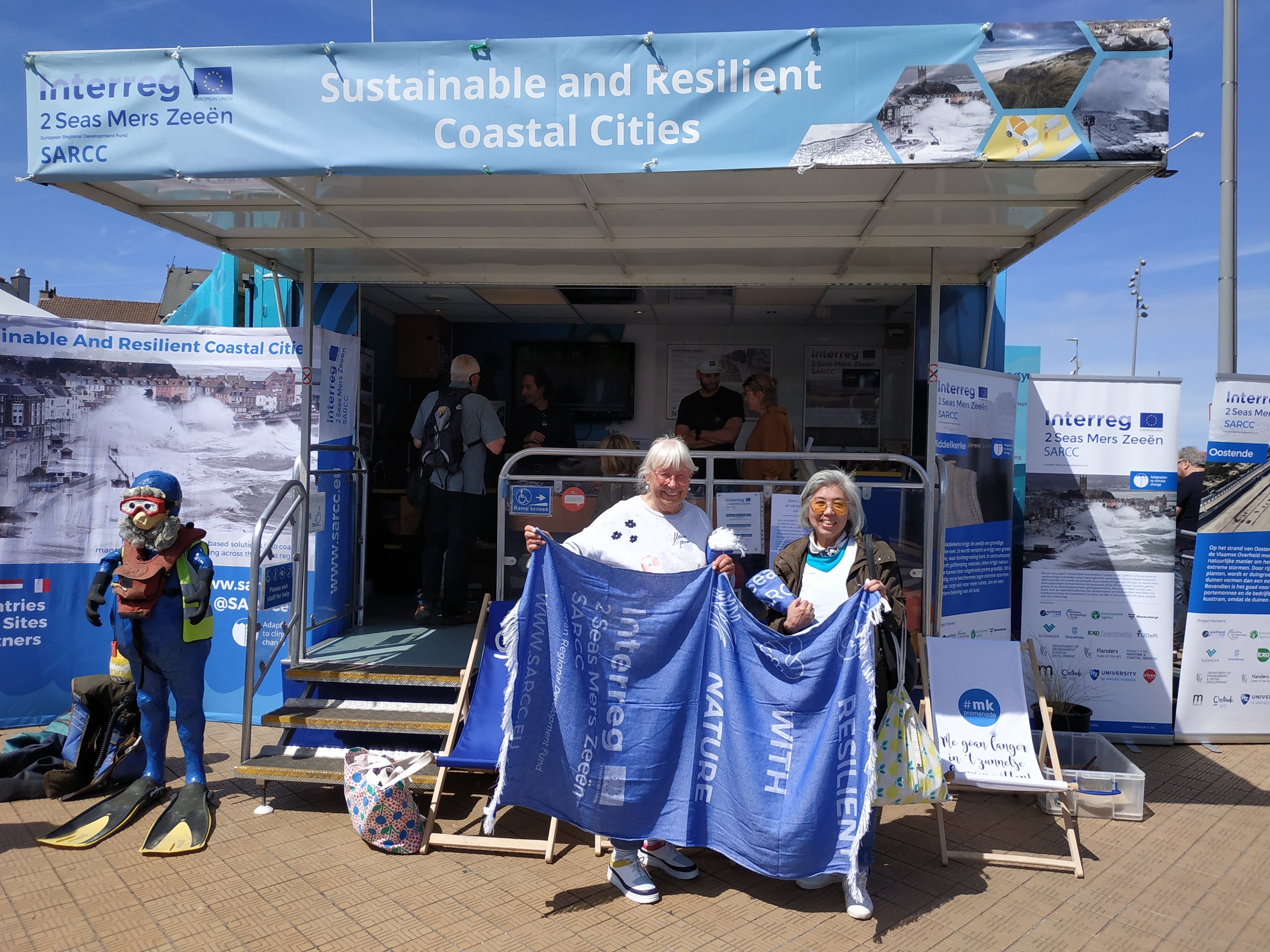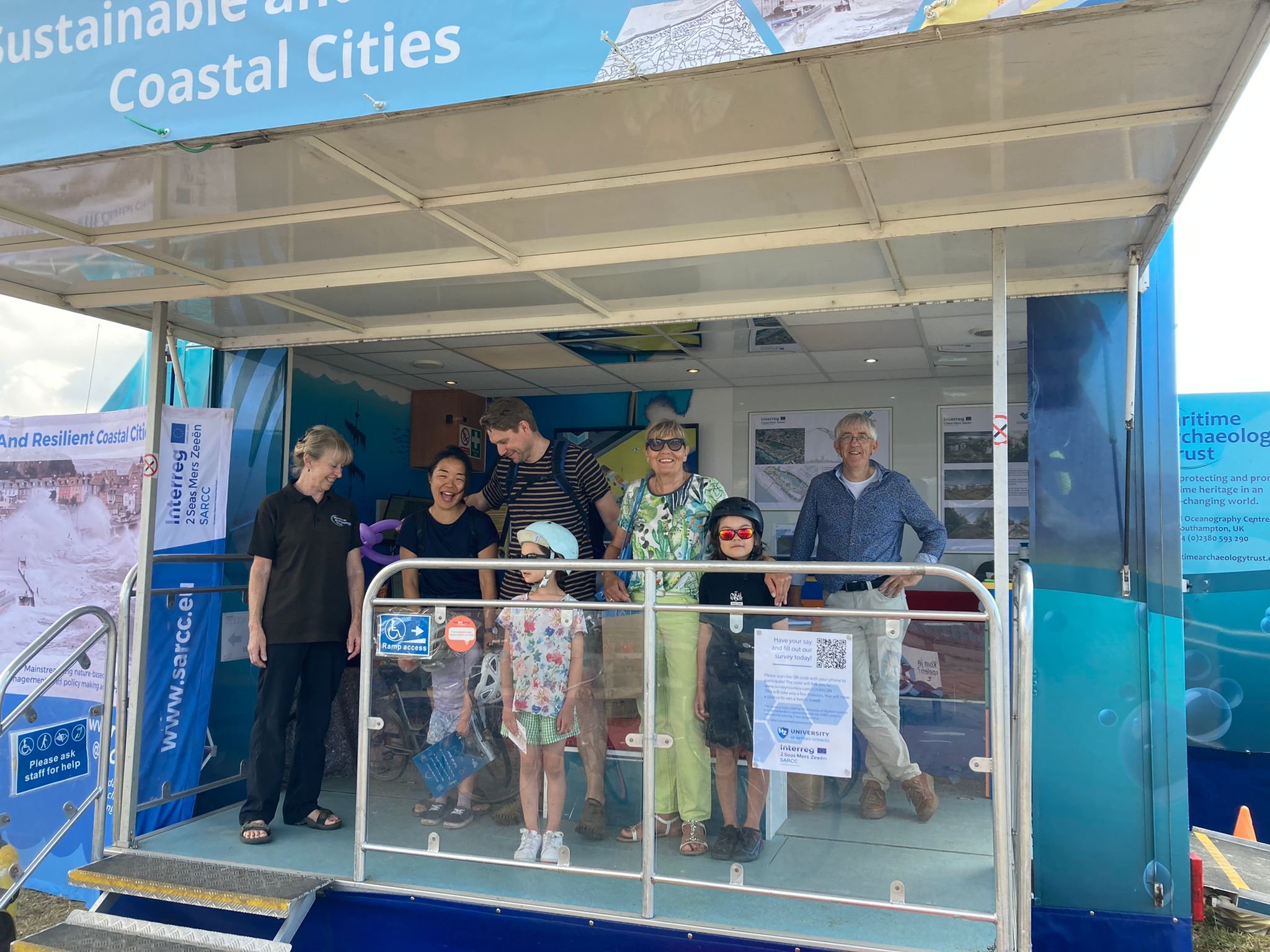The SARCC 2022 Roadshow!
During the latter half of 2022 in the build up to our final conference and the SARCC project coming to a close, a number of our partners have been touring around SARCC’s four resident countries as part of our public outreach program, spreading the word of the SARCC project. This is referred to as the SARCC Roadshow!
With such a vast area to cover, touring across the UK, France, Belgium and the Netherlands the SARCC Roadshow had to be organized in an innovative way. Spearheaded by our team members at Maritime Archaeology Trust, the events took place using their Discovery Bus, as both transport and as an education centre at all of the Roadshow stops. This mobile exhibition featured a range of multi-sensory interactive facilities, with posters and banners depicting the pilot investment taking place at each of their locations, as well as several screens showing videos from the pilot areas explaining the Nature Based Solutions.
Setting off in March, the tour began it’s travels in Hampshire at the National Oceanography Centre with Nigel Atkinson HM Lord Lieutenant of Hampshire. Having kicked off the tour with such a grand opening we continued on to the Isle of Wight, where we began by visiting the Queensgate Foundation Primary School which was also attended by HM Lord-Lieutenant of the Isle of Wight, Mrs Susie Sheldon. It was great to have our first visit alongside seventy-five children visiting the bus to learn about submerged landscapes and the SARCC project. We continued on to the Cowes Enterprise College where year nine students were introduced to the SARCC initiative as well, participating in conversations, quizzes and much more. In May, the Discovery Bus team continued the tour visiting Gravelines in France, followed by the Blue Economy Science Summit (BESS) at Blue Bridge Oostende, Oostende voor Anker event, stopping at the Burg Square in Bruges and finally attending the annual Blankenberge Harbour Festival. Despite not staying in each location long, the Discovery Bus was a great success, visited by fifty delegates in Oostende alone, hundreds of school children, and thousands of passers-by interested in the SARCC project. During our time in both France and Belgium the numbers of people we were able to interact with was beyond expectations. During the four-day festival in Blankenberge, a reported eighty-thousand visitors were in attendance, whilst a staggering one-hundred and eighty-thousand people came to the Oostende voor Anker, an amazing large annual event with many historic vessels on show along with many activities and music performances taking place. Whilst enjoying all of these events, we were able to talk to many of the visitors about the project with many more making full use of the QR codes embedded in our posters and promotional materials around the bus allowing the public easy access to our website, visualization toolkit and mindscape surveys to leave us feedback on the project.
Following such a huge success in France and Belgium, the Roadshow Discovery Bus has subsequently gone on to tour the UK throughout June and August, primarily visiting events across Cornwall and the New Forest region. A particular highlight for the team when travelling around Cornwall was the Royal Cornwall Show in June, where a reported one-hundred and twenty thousand plus visitors attended throughout the three-day event. The conversations about the nature-based solutions and coastal changes, much like in France and Belgium, were spurred on particularly by those who had recognised the dramatic images of storms and flooding on the bus from their local area, which in this case was Penzance. Many people shared personal stories about their experiences with flooding, showing their passionate interest in our work. Finding such enthusiastic individuals amongst classes of local school children can frequently be challenging, particularly when talking about ‘adult’ issues. Thankfully this fear was immediately cast aside when talking with the children, who were overwhelmingly fascinated by the artefacts we had on display and eager to learn about sea level rise. Continuing from here, our next stop was at Penryn Collage, where our team were fortunate enough to engage with hundreds more students, leading student discussions, presenting SARCC videos, and doing nature-based solution themed quizzes. As this trip concluded our tour of Cornwall, we were once again able to monitor the success of our presentations through feedback surveys, our interactions with the public and the many mindscape questionnaires completed on the bus whilst in Cornwall.
In August the Roadshow continued its tour around the UK, visiting the New Forest, Bucklers Hard and Lepe Country Park. Although the New Forest isn’t close to either of our two UK pilot investments, it’s coastline and community have been severely affected by sea level change and extreme erosion, particularly in recent years. Only a year ago a large portion of the Hurst Castle wall collapsed. This important historical tourist spot was built in 1544 on the coast and acted as a sea defence for centuries. Its destruction really showcases how the current sea and climate changes are increasing pressures on the already fragile coast. This is but one of many examples of the destruction rising sea levels is causing in the New Forest area. In both Bucklers Hard and Lepe Country Park also, visitors frequently approached us to talk about their own experiences. With the first event in the New Forest geared toward nature and conservation, people were generally very curious to learn more about Nature Based Solutions, particularly in context to solving issues in their towns and villages. By the end of these visits, not only had many people learnt about the values of SARCC but we had also learnt a great deal from them. As we wrapped up and travelled our separate ways back home, we began reading the bus’s visitor’s book and the kind comment people had left behind. Quotes like, ‘I’ll be investigating further’, ‘this sounds like a very valuable resource’, and ‘we thought this was a brilliant display and so informative, also very child friendly, we learnt lots’ were just the tip of the iceberg.
Finally, the last location on the tour was Vlissingen in the Netherlands, the home of the final pilot. The pilot project in Vlissingen is being implemented along the seafront, protecting the buildings that have previously been threatened by the encroaching sea. Using very inventive nature-based solution, excess seawater during surge flooding events will be absorbed and redirected naturally to an urban system to limit the chance of damage to property. This is achieved by a combination of green barriers and raised dyke as well as utilising open green space within the city as a sump. With a pilot of this scale, stretching across such a vast breadth of land a great deal of locals were actively looking for answers as many had heard of the planned works. We were able to provide detailed answers, giving away hundreds of handouts containing images and text explaining the pilot scheme.
When returning home and concluding the Roadshow tour, our team felt a great sense of achievement. It’s sad that the SARCC project is coming to an end, but the passion, hope and fascination unanimously expressed across these four countries, from people of all ages is certainly cause for celebration.
We hope you have enjoyed hearing a little bit more about the work we have been doing on the SARCC Roadshow, and we hope to see you this December at the SARCC Final Conference. Click HERE to book your tickets now or sign up for the live stream and learn more about SARCC from the comfort of your homes!
